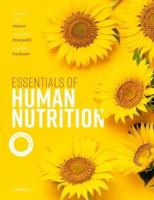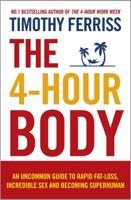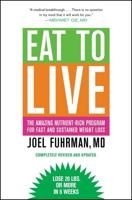Publisher's Synopsis
Candida albicans or Candidiasis or Yeast Infection was a very rare condition 30 years ago, however now the illness is affecting the health of about 33% of all people worldwide. Today it is a widespread condition that affects up to 80% of people between the ages of 15 to 30. The common complaint from yeast infection sufferers is that they are "feeling sick all over." Fatigue, allergies, immune system malfunction, depression, chemical sensitivities, and digestive disturbances are just some of the symptoms patients with the yeast syndrome may experience. Apart from the common conditions such as Allergies, Vaginitis, Thrush, Genital and Urinary Tract Infections, Rash, Digestive Problems, Respiratory Problems, Chronic Fatigue and/or Loss of Libido, Candidiasis can also cause much more serious autoimmune diseases, such as cancer, psoriasis and rheumatoid arthritis as well as ADD, ADHD, Addison's disease and AIDS. Have a look at the list below. The more questions that you answer positive, the greater your risk of suffering from yeast infection: Do you have repeated fungal infections ("jock itch," athlete's foot, ringworm)? Do you regularly experience bloating, headaches, depression, fatigue, memory problems, impotence or lack of interest in sex, muscle aches with no apparent cause, brain fogginess? Do you experience symptoms of PMS (premenstrual syndrome)? Do you have cravings for sweets, breads or alcoholic beverages? Do you repeatedly experience drowsiness, mood swings, rashes, bad breath, dry mouth, post-nasal drip or nasal congestion, heartburn, urinary frequency or urgency? Symptoms of Candida Yeast overgrowth or candida albicans causes systemic illnesses that produce a wide variety of symptoms. This makes it difficult to diagnose accurately since it shares symptoms with so many other conditions. Below is a brief outline of some of the problems that candida albicans can cause. Allergies, Vaginitis, and Thrush The condition can cause a number of diseases, ranging from allergies, vaginitis, and thrush (a whitish fungus in the mouth or vagina) to an invasion of the genital and urinary tracts, eyes, liver, heart, or central nervous system. Digestive and Respiratory Problems, Central Nervous System Imbalances Other symptoms of Candidiasis include digestive problems such as: bloating, cramping, gas, and diarrhea; respiratory problems such as: coughing, wheezing, earaches, central nervous system imbalances as well as generalized fatigue, and loss of libido. Autoimmune Diseases The most negative and serious conditions caused by Candidiasis are autoimmune diseases, such as cancer, psoriasis and rheumatoid arthritis as well as ADD, ADHD, Addison's disease and AIDS. 5 Steps To Health Below is an overview of what you will find in the book. As you can see there are no "secrets" - it is all here. It is an all-natural approach and each step explains in detail what needs to be done from the comfort of your home. Step 1: Finding and Addressing the Predisposing Factors Step 2: Boost Your Immune Function Step 3: Detoxification and Elimination Step 4: Follow the Candida-Control and Elimination Diet Step 5: Follow the Nutritional Support Guidelines Beware Of Misleading Information - There Is No Quick Fix Some of the information currently available in the public domain is very misleading and downright dangerous. One substance i.e. yogurt or garlic or apple cider vinegar even baking soda will not cure your condition. Some of the recommendations are even dangerous and very irresponsible and might in fact aggravate the very condition you are trying to cure. Over the counter medications such as Diflucan and Canesten might be affective in the short term but does not offer a permanent solution. When you want to get rid of the weed in your garden you don't just cut it down you need to pull it out!"










